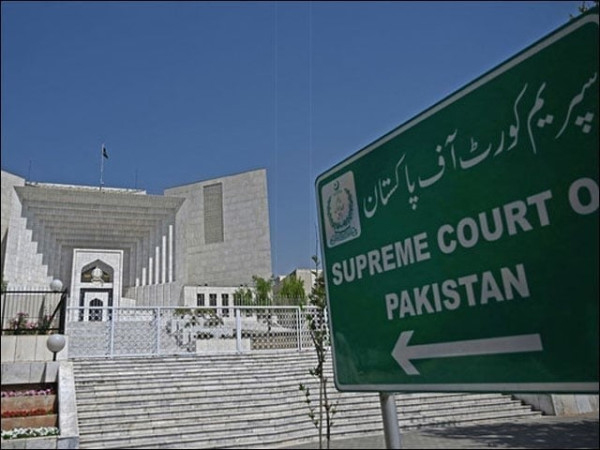Supreme Court Dismisses Petition Against Declaring Sunni Ittehad Council as Parliamentary Party

Islamabad: The Supreme Court’s constitutional bench dismissed a petition challenging the recognition of the Sunni Ittehad Council as a parliamentary party, upholding the objections raised by the Registrar’s office.
A seven-member bench, led by Justice Aminuddin Khan, heard the petition, which was filed by Maulvi Iqbal Haider. Haider argued that his petition had been timely filed and that a review petition on the matter was still pending. He sought that the issue be addressed in any other case.
Justice Jamal Khan Mandokhel questioned Haider’s intentions, asking, “Why do you want us to do something unconstitutional?” He added, “It is up to the candidates whether they wish to join a political party or not.”
Chief Justice of the Bench, Justice Aminuddin Khan, remarked that Maulvi Iqbal Haider was once again revisiting the same issue that had previously been restricted.
The Court upheld the objections of the Registrar’s office and dismissed the petition.
Supreme Court Rejects Petition Regarding Access to the Court for Petitioners
The same constitutional bench also rejected a petition regarding the lack of access to the Supreme Court for petitioners. During the hearing, the lawyer representing the petitioners argued that 90% of petitioners are unable to access the Supreme Court.
Justice Jamal Khan Mandokhel responded, “We are directly hearing your case; what more access do you need? You are undermining your own institutions.” He further remarked that some claim the judiciary’s performance is ranked 120th or even 150th, questioning the sources of these rankings.
Case on Setting Timeframe for Completing Trials Dismissed
In another case, the bench dismissed a petition requesting a fixed timeframe for the completion of trials. During the hearing, Justice Ayesha Malik noted that criminal law already includes timeframes, and Justice Jamal Khan Mandokhel suggested the petitioner approach Parliament for legislative changes if needed.
Petitioner Hassan Raza argued that trials often take 20 to 40 years to conclude. However, Justice Ayesha Malik dismissed the claim, saying, “Don’t make general accusations. The system isn’t perfect, but progress is being made. Your petition is related to the National Judicial Policy, and we won’t issue any directives under Article 184(3).”
Justice Jamal Khan Mandokhel emphasized that the judiciary operates within the confines of the Constitution and law.
Justice Musarat Hilali warned that a harsh response from the Court might lead to public disillusionment. Justice Ayesha Malik added that the Law and Justice Commission is responsible for judicial reforms, and petitioners should approach it.
After hearing the arguments, the bench dismissed the petition.







